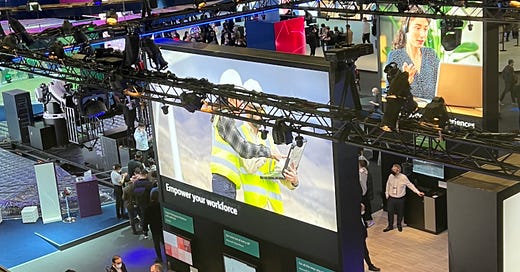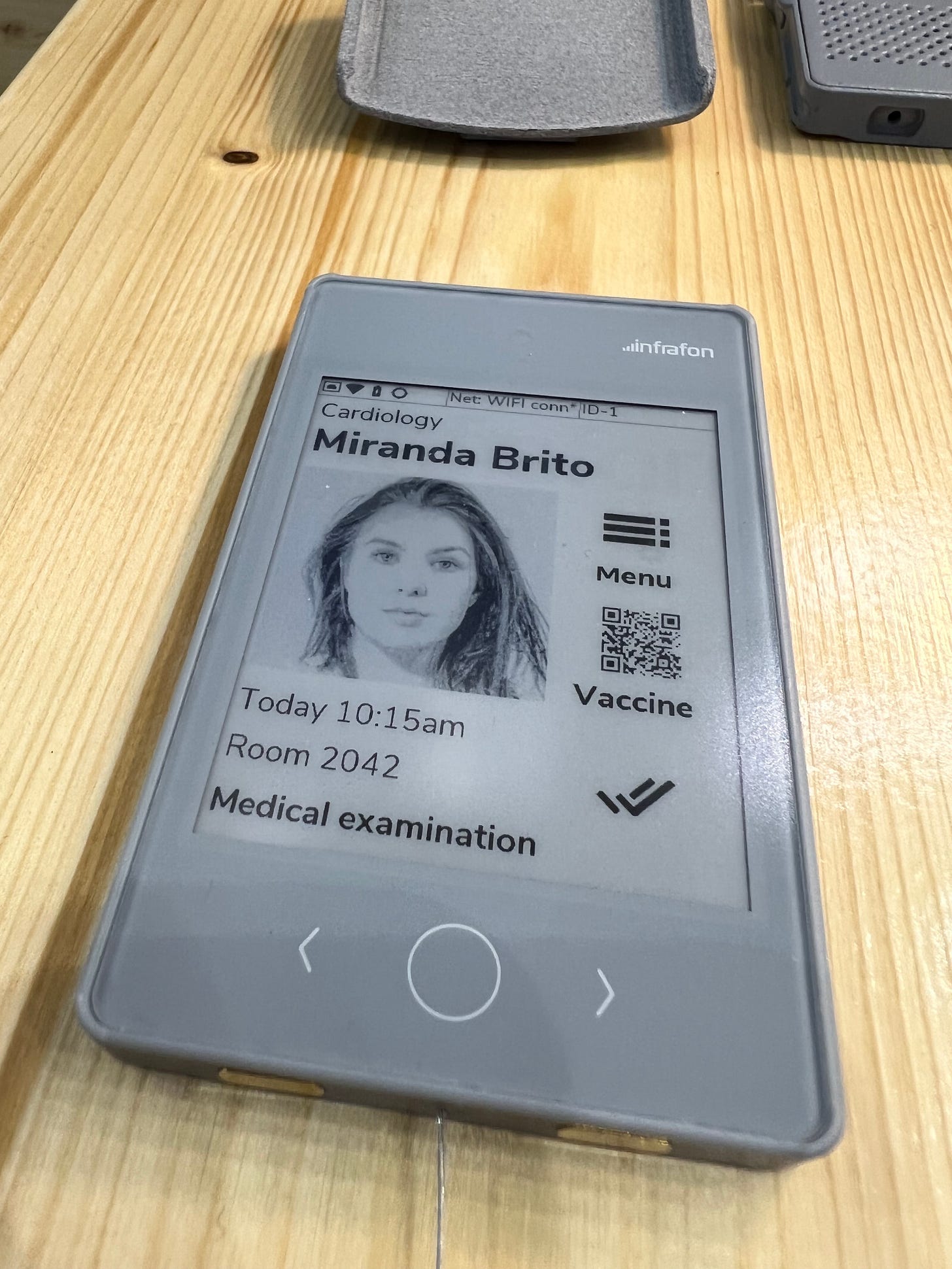Hunting healthtech in Barcelona
Why a simple device for people who can't work a smartphone is my MWC highlight
In early February 2020 I was looking forward to my annual trip at the end of the month to Barcelona for Mobile World Congress, which was always an enjoyable if exhausting way to get a feel for what was going on in the most important tech industry. We all know what happened next - MWC was the first major event to be cancelled because of the coronavirus. It limped back in a very limited form in June 2021 but this week it is back for real and it is my first major tech event since the virus struck and the first since I left the BBC.
I’ve come for just a couple of days to take the temperature of the industry. My initial findings - Huawei still hasn’t accepted the fact that its days as a major force outside China are numbered, handset makers are still convinced against all the evidence that we want phones to fold, and some eight years after 5G first became a talking point at MWC the industry is desperate to convince us that the Internet of Things as envisaged in countless Barcelona showfloor demos really has now arrived.
But what I was really looking for was something meaty for this newsletter in the form of a healthtech innovation. I started my hunt at Sunday evening’s Showstoppers preview event, where a collection of mostly small companies show off their wares to a crowd of journalists who are entertained with tapas and cava.
The pickings were thin, apart from the usual AI toothbrush and an intriguing company called ZTO, which was offering a smartphone fitness platform for insurance companies. The idea was that they would use it to offer lower premiums to consumers who could show they were keeping fit. “6 euros a month off your premium if you climb three flights of stairs a day,” as the French representative of the Japanese company behind the platform explained it to me.
Now, it’s no surprise that insurers love the flood of data about their customers that smartphones can provide. But if they know everything about us there are serious consequences both for privacy and for the pooling of risk which is at the heart of insurance.
But the product that really impressed me at Showstoppers had nothing to do with health - except that it bathed me in a warm glow of nostalgia. The Astro Slide 5G Transformer is a smartphone with a foldaway keyboard - yes real keys - and looked like a modern version of the Psion Organiser, a device which seemed to me impossibly cool when I owned several in the late 1990s.
(You can see a TikTok I made about ShowStoppers here).
I was still on the hunt for healthtech as the vast halls of Barcelona’s Fira opened on Monday and a decent crowd - probably around half the number who visited in 2019 according to one estimate - poured in to search for innovations, gossip and, more urgently, coffee. The giant forces of this industry - Samsung, China’s ZTE, Vodafone, Amazon - were back and spending lavishly on immense stands but had little to show in terms of innovation. And no healthtech as far as I could see.
In search of inspiration I dropped by the rather modest stand of the GSMA which organises the show and spoke to its tech marketing manager Andrew Parker, a reliable guide to industry trends. He told me that 5G was finally making an impact in many areas including healthcare, pointing towards the impact that all sorts of connected sensors in hospitals and homes could have on patient care.
But he had no concrete examples at the show to offer and as I trudged wearily on down the travelators and across the vast carpeted halls, I began to despair. Then suddenly mid-afternoon, prompted by a suggestion from Twitter, I struck gold.
On a tiny stand in Hall 7, I came across Infrafon, a German company there with the Baden-Wuerttemberg delegation, and its British CTO Brian Wyld. He showed me a small device which looked like the kind of ID card you swipe to get into a building, but with a grayscale e-paper screen.
“Think of it like a smartphone. For people who don't, or can't, or won't use a smartphone,” Brian told me. The device would be issued to a patient in hospital or perhaps being cared for at home. “Because it's a generic platform like a smartphone, you can use it, say in the hospital to have your medical data, your QR code, your vaccination status, your picture. It will tell you that you have your next appointment with Dr. Such and Such and will tell you where the appointment room is.”
Because it is a connected device it can be updated when things change, say when the appointment has to move to another room. Patients whose treatment is continuing can take the device home and then visiting healthcare professionals will be able to scan it for access to their records.
But the key is simplicity for the user: “They don't have to think about an app on their smartphone, about the battery charge, about not being able to use a smartphone,” Brian Wyld says. “It will not have all the other 1000s of buttons you get on a smartphone. The idea is to make it as simple as possible.”
As well as its simplicity, the thing that really strikes me about Infrafon’s device is the control it puts in the hands of the patient over their data and much else about their healthcare. The smartphone revolution has put hugely powerful computers which can doo all sorts of amazing things in the pockets of billions - but it has also created a divide between those who can understand and exploit the technology and those who cannot.
Sometimes, less is more - a useful lesson to take away from an event where the emphasis is on the relentless forward march of sophisticated technology into every corner of our lives.






brilliant article. Thank you. Must have been exhausting for you. Know how much we appreciate your news/views/insights.